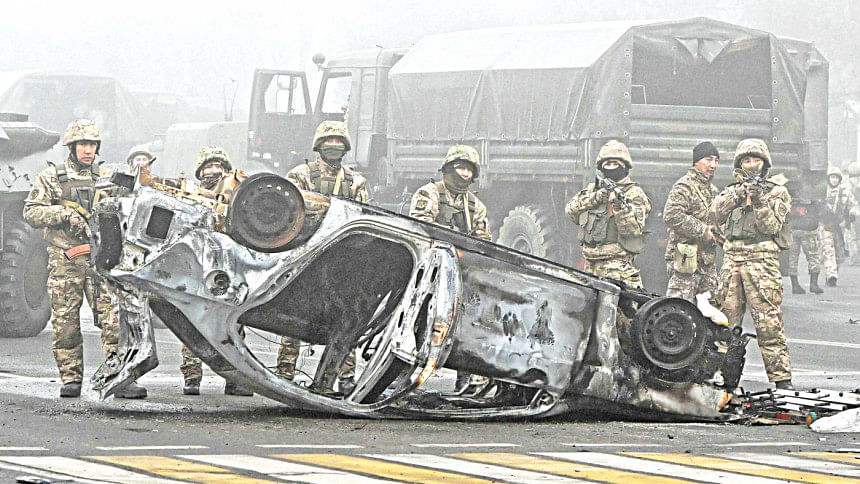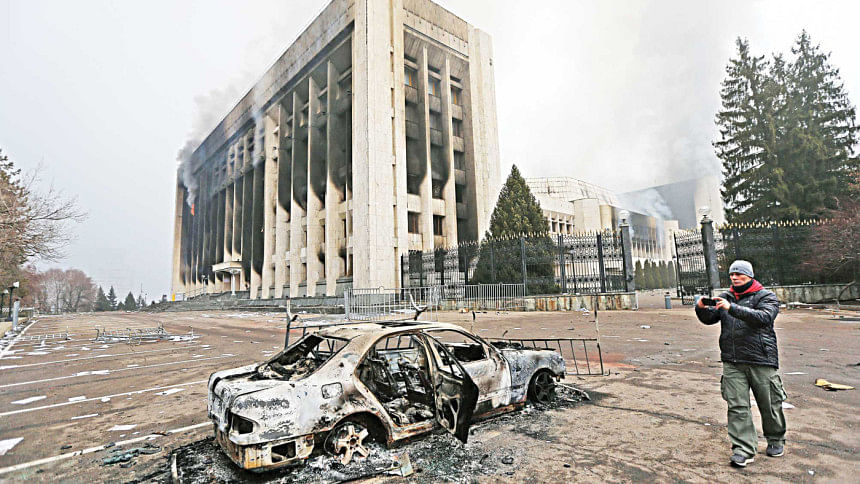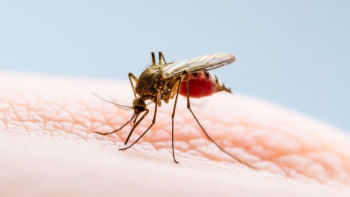‘Dozens’ killed in Kazakhstan unrest

A Moscow-led military alliance dispatched troops to help quell mounting unrest in Kazakhstan on Thursday as police said dozens were killed trying to storm government buildings.
Long seen as one the most stable of the ex-Soviet republics of Central Asia, energy-rich Kazakhstan is facing its biggest crisis in decades after days of protests over rising fuel prices escalated into widespread unrest.
Under increasing pressure, President Kassym-Jomart Tokayev appealed overnight to the Russia-dominated Collective Security Treaty Organisation (CSTO), which includes five other ex-Soviet states, to combat what he called "terrorist groups" that had "received extensive training abroad".

Within hours the alliance said the first troops had been sent -- including Russian paratroopers and military units from the other CSTO members -- in its first major joint action since its founding in 1999.
Tokayev said in a televised address early yesterday that "terrorists" were seizing buildings, infrastructure and small arms, and battling security forces.
Tokayev tried to head off further unrest by announcing the resignation of the cabinet early on Wednesday, but protests continued.
Military forces had deployed en masse in the streets of Almaty and were firing live rounds, according to footage shown on Russian television yesterday. Videos on social media showed pillaged shops and burned buildings in Almaty, automatic gunfire in the streets and residents screaming in fear.
Officials said more than 1,000 people had been wounded in the unrest, with nearly 400 hospitalised and 62 in intensive care. As of midday yesterday, more than 350 security officers had been wounded and 13 killed, including two who had their heads cut off, officials told local media.
Protests spread across the nation of 19 million this week in outrage over a New Year increase in prices for liquid petroleum gas (LPG), which is widely used to fuel cars in the west of the country.
Protesters were reported to have stormed several government buildings on Wednesday, including the Almaty mayor's office and the presidential residence. The full picture of the chaos was unclear, with widespread disruptions to communications including mobile phone signals, the blocking of online messengers and hours-long internet shutdowns.
With protests escalating, the government late on Wednesday said a state of emergency declared in protest-hit areas would be extended nationwide and in effect until January 19.
The EU and the UN called for "restraint" on all sides, while Washington urged authorities to allow protesters to "express themselves peacefully."

 For all latest news, follow The Daily Star's Google News channel.
For all latest news, follow The Daily Star's Google News channel. 



Comments